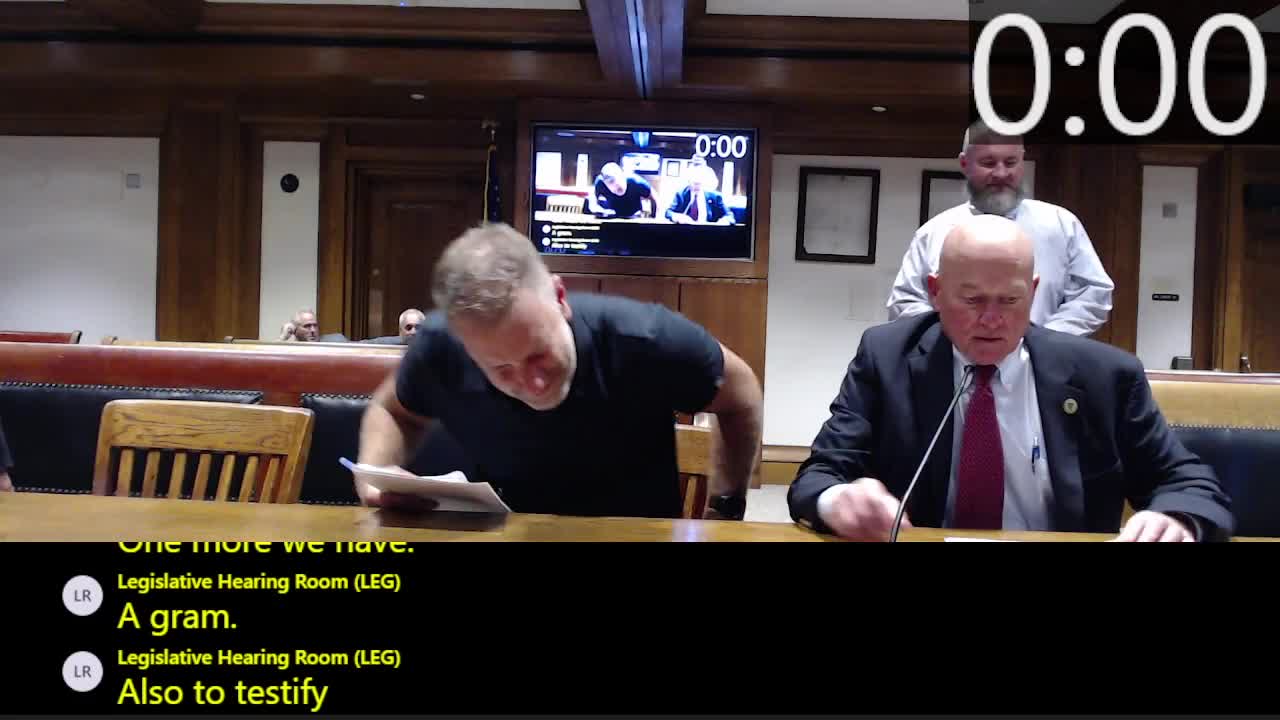State scientists, aerial foresters and corrections construction coordinators seek Group 2 retirement status
Get AI-powered insights, summaries, and transcripts
Subscribe
Summary
MOSES and affected employees told the Joint Committee that forensic scientists, DCR aerial foresters and Department of Correction construction coordinators face hazardous conditions that warrant Group 2 retirement classification; bills filed include House bills 2979, 2972 and 2881 and Senate bills 1853 and 1843.
Representatives of MOSES (Massachusetts Organization of State Engineers and Scientists) urged the Joint Committee on Public Service to transfer three job classifications from Group 1 (clerical/administrative) into Group 2, arguing the positions involve heightened physical danger and specialized responsibilities.
Joe Durant, appearing for MOSES with colleagues from several state agencies, said the proposals cover forensic scientists at the state police crime lab (House Bill 2979/Senate Bill 1853), aerial foresters at the Department of Conservation and Recreation (House Bill 2972/Senate Bill 1843), and construction coordinators at the Department of Correction (House Bill 2881). Durant said MOSES submitted written testimony, over 40 member testimonials and two actuarials in support.
Aerial foresters detailed climbing and injury risk. Grama Broberg, an aerial forester with DCR, said there are six aerial foresters statewide and each has climbed “10,000 trees apiece” in the Asian longhorned beetle eradication program; she described routine work at heights, over power lines and in unstable trees and cited national statistics that tree workers face fatality rates many times the national average.
Forensic scientists described frequent exposure to traumatic scenes. Jessica Ledger, a forensic scientist at the State Police crime lab, said forensic staff work shoulder to shoulder with troopers at crime scenes and have processed “the absolute worst that you can imagine of humanity,” noting she and colleagues submitted about 40 written testimonial letters documenting trauma and occupational risk.
Construction coordinators from the Department of Correction described response duties inside secure facilities that expose them to hazards including high-voltage equipment, steam, sewage, asbestos and confined spaces. Nolan Griffiths, fire safety administrator for the DOC and Unit 9 board member, said the work requires real-time troubleshooting of critical systems and can occur during lockdowns where conditions may be volatile.
Speakers asked the committee to issue favorable reports on the bills; MOSES requested the same committee action the body had taken in the prior session on similar bills.
Ending: Testimony closed with committee staff acknowledging receipt of written submissions and no vote was taken during the hearing.
